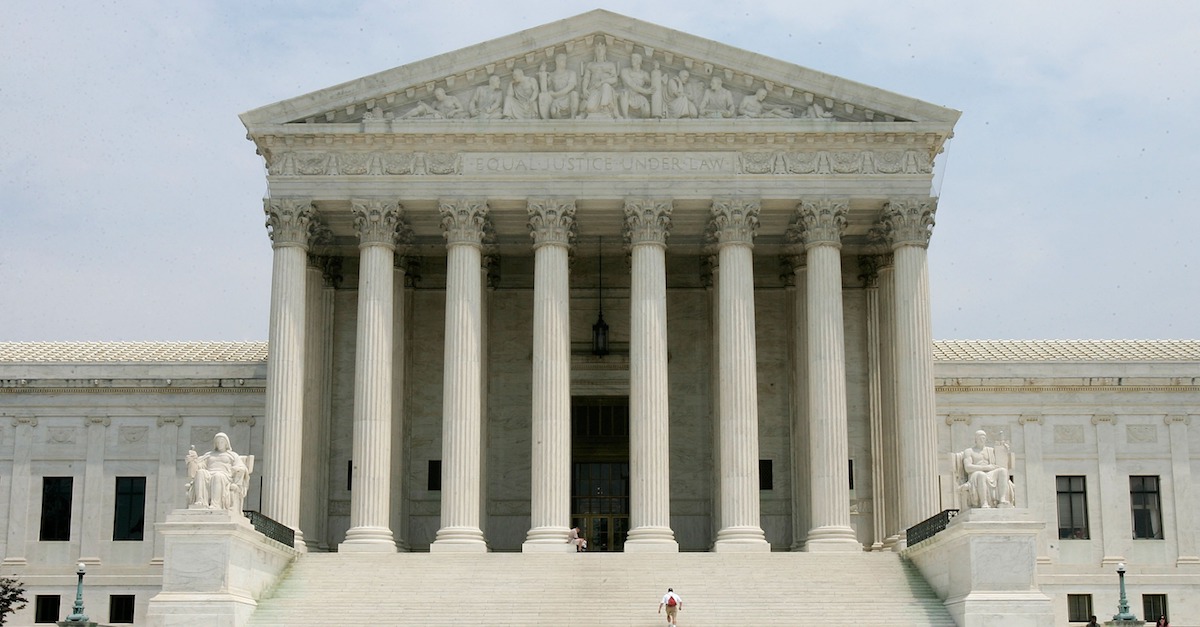
The long-awaited decision in a Supreme Court case over a Wisconsin redistricting plan that was challenged as unlawful gerrymandering finally came out on Monday, with the Supreme Court ruling that the voters who brought the case did not have standing to make their challenge. As a result, a lower court’s decision against the redistricting was vacated. Similarly, a challenge to redistricting in Maryland was also shot down. Both cases, however, focused on narrow issues specific to those cases, without fully addressing issues of alleged partisan gerrymandering.
First, there’s the case of Gill v. Whitford, which was brought by individual Wisconsin voters who claimed that their votes were being diluted by partisan gerrymandering that rigged certain districts so that Democratic voters were split among areas where their votes would have less of an impact–either to ones where Democrats were likely to lose, or where Democrats had such large majorities that adding more Democrats wouldn’t help the party.
The Court noted, however, that “[b]ecause that harm arises from the particular composition of the voter’s own district, remedying the harm does not necessarily require restructuring all of the State’s legislative districts. It requires revising only such districts as are necessary to reshape the voter’s district.”
Basically, the Court said that asking for a remedy that reaches across the entire state is improper when the voters only have standing to address their own districts.
The Court also noted that some of the plaintiffs did make proper claims of individual harm, but then when the case went forward, they focused on the harm caused to the state’s Democrats. By arguing based on “group political interests” instead of their own rights, they undermined what could have been a valid claim. Chief Justice John Roberts said in his opinion, which all of the other justices joined either in whole or in part:
Certain of the plaintiffs before us alleged that they had such a personal stake in this case, but never followed up with the requisite proof. The District Court and this Court therefore lack the power to resolve their claims.
The Court therefore knocked down the challenge to the Wisconsin redistricting, but because it was due to lack of standing, they did not address the merits of the case, and therefore no significant legal decision on the issue was reached. The Court noted that while normally cases that fail for lack of standing are dismissed, this will not be the case here. Instead, they will allow the voters to go back to District Court to reargue claims of individual harm.
Here, however, where the case concerns an unsettled kind of claim that the Court has not agreed upon, the contours and justiciability of which are unresolved, the case is remanded to the District Court to give the plaintiffs an opportunity to prove concrete and particularized injuries using evidence that would tend to demonstrate a burden on their individual votes.
The Maryland case of Benisek v. Lamone, dealt with a claim from Republicans who alleged that a redistricting in their state was retaliatory against the GOP. A District Court judge denied their motion for a preliminary injunction in the case, which would block the 2011 redistricting plan pending the outcome of a trial. Their goal was to have an injunction in place to make sure that the new redistricting would not apply to the 2018 election. The District Court said no, and then put the case on hold until Gill v. Whitford was decided. The Supreme Court ruled there was nothing improper about this, and therefore affirmed that decision.
[Image via Alex Wong / Getty Images]